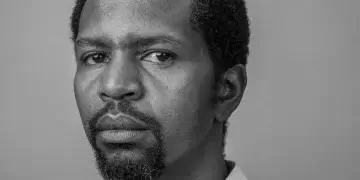Shimoni (‘The Pit’) is a psychological drama feature film that dares to colour out of the lines and provoke the status quo. It dives into the deep waters of the intricate, underlying temperaments that society views as misfits, further questioning the relationships that exist for those ‘exiled’ individuals who wish to reintegrate into society.
Shimoni has been a hit on the festival circuit since it first premiered at the Toronto International Film Festival (TIFF) last year. The film was also well received at the International Film Festival, Rotterdam, and at FESPACO, where it won the Bronze stallion, and the Golden Film Award at the Luxor African Film Festival. It has also screened at the Red Sea Film Festival and Milwaukee Festival. It made its US premiere at the new African Film Festival in New York, joining a list of 30 other films. Back home, it had its official Kenyan premiere on 24 April to a sold-out audience of eager film lovers and enthusiasts.
Written and directed by Angela Wamai, this being her feature directorial debut, Shimoni tells the story of Geoffrey (Justin Mirichii), a 35-year-old former English teacher and ex-convict returning to his home village after serving a 7-year sentence for a heinous crime. The film displays a phenomenal, deeply layered performance by Mirichii as he takes us through the lonely journey of Geoffrey trying to fit into a world that already has no place for him.
Psychological trauma, pain and isolation seem to be a burden we all as individuals have to carry at one point of our existence. For Geoffrey, this burden is too heavy to bear after he leaves the physical prison world after seven years. In this physical prison, everything had a particular mechanical routine and rhythm; now, having to return to his home, which already has its own way of doing things, he is immediately forced to adapt to their way of life – becoming a farmhand. With little assistance from the farm manager, Martha (Muthoni Gathecha), who constantly belittles his efforts and mocks his ability to do simple tasks such as milking a cow, Geoffrey already begins to feel trapped. At one point, Martha questions why Geoffrey enjoys eating cold githeri, to which he responds: “force of habit” as a point of reference to his time in prison.
Geoffrey has nobody to confide in besides Father Jacob (Sam Psenjen), the only person in the village who knows his past crime. However, what Father Jacob doesn’t know is that Geoffrey is facing another trauma, coming face to face each day with his abuser, who molested him at a young age. He becomes an internal captive to the shame and guilt that he is carrying, involuntarily wetting his bed and having night terrors.
One day, after church sermon, he meets with Weru (Daniel Njoroge), his abuser, and out of anger and shock, he runs to hide in a cowshed and instantly begins wetting himself. One of the calves starts sniffing his trousers, and in a quick, blinding rage, Geoffrey hits its head with a metallic milk basket, instantly killing it. Upon seeing this, Father Jacob tells him to pack up and leave. With nowhere else to go, Geoffrey begs for a second chance, which the pastor grants. However, this relief is a set-up, for the worst is yet to come.
The days that follow see Father Jacob go out of his way to try to indoctrinate him into religion, with bible study sessions and Geoffrey reading out loud the Ten Commandments, placing emphasis on “Do not kill”. Geoffrey already begins to feel a false sense of hope and redemption when he gets a job as a private English tutor. Eventually, his nightmares become real when the entire village discovers his past crime, and they immediately demand his banishment.
Wamai’s directorial style is evident in her brilliant, creative, and precise decisions throughout the film. The film’s location is at the heart of the village life, filled with lush vegetation and beautiful scenery. The village becomes a character on its own in this film, as it greatly brings out the tone and the theme while creating the close-knit village community the film anchors on while highlighting the disparity with Geoffrey’s previous prison world.
The use of local dialect throughout Shimoni intentionally captures the authenticity of village life, adding nuances to Geoffrey’s struggles as an outsider when he finds it difficult to speak their language. It also adds to that patriotic feeling on screen to have a film that tells a story in its native tongue, something more Kenyan filmmakers should gravitate towards.
The cinematography work is exemplary, shot by Dru Mungai, who puts more focus on close-ups, a decision that brings out the claustrophobic feeling that we, as an audience, feel like we’re inside Geoffrey’s internal prison.
Post-production sound (Marco Salaverria), together with music (Kato Change), is another immaculate technical aspect that elevates Shimoni’s excellence. For instance, the folktale music complements the various emotional states of all the characters, and the ambience is specific in creating the looming horror and thriller mood that the story is gearing towards. In some instances, you can hear the sound of rain and thunder, yet not visually; this constantly heightens the climatic effect of Geoffrey’s downfall.
Films like Shimoni that are brazenly ready to hold up the mirror of truth and face it directly back to society are gems. They stir up conversations on taboo topics and raise the question of humanity and what little is left. The director (Wamai) had a goal: to unravel what it means to be the black sheep in a community that relies on a religious foundation. What questions will come out of it when we follow the journey of a character whose people are ready to punish him for a public crime that he already paid for but are not willing to protect him from a private crime committed against him and his older brother?
It is a moment of great pride that such brilliant works are representing us in the festival circuits. And despite the hurdles that filmmakers still face filmmakers – Shimoni was a micro-budget film – we are willing to fight for such impactful stories to be told, and one can only imagine how many more ‘unconventional’ stories are still out there.
Shimoni is now screening at Unseen Cinema until the end of May.
Never miss a moment.
Get the latest stories from Sinema Focus delivered straight to your inbox. Subscribe now.











